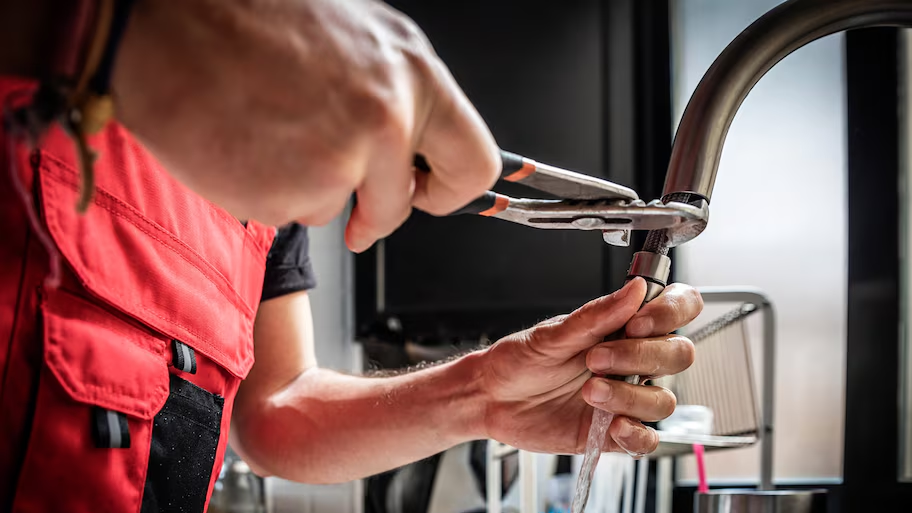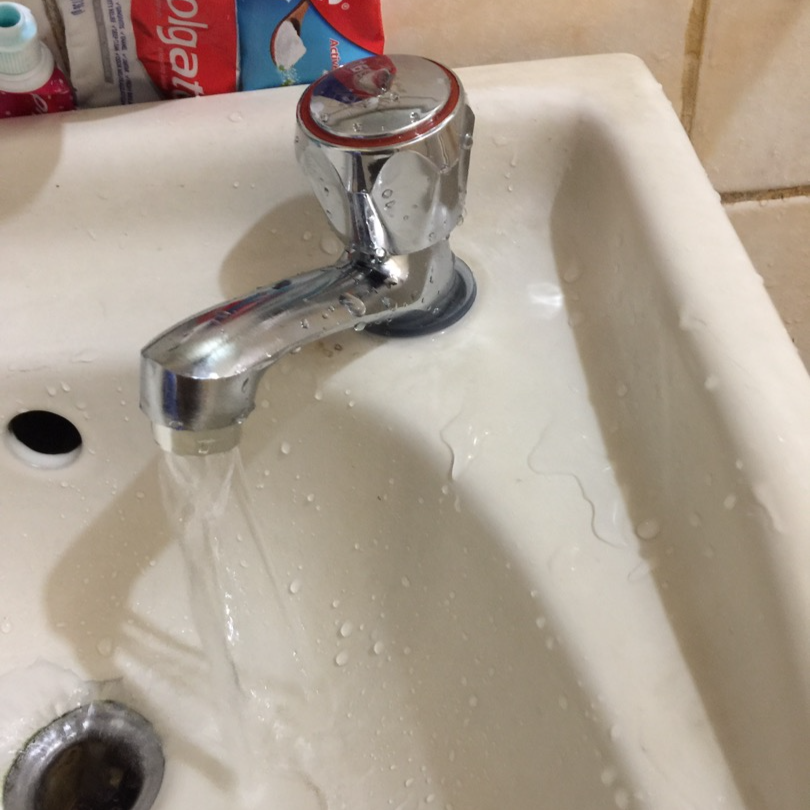Understanding the Value of Fixing a Broken Faucet
Understanding the Value of Fixing a Broken Faucet
Blog Article
What're your thoughts and feelings on Why Is It Important To Fix Your Leaking Tap/Faucet??

Leaking taps might appear like a small hassle, yet their impact exceeds simply the aggravation of the sound. From wasting water to sustaining unneeded financial expenses and health and wellness threats, ignoring a dripping faucet can cause different effects. In this write-up, we'll look into why it's crucial to address this usual house concern without delay and properly.
Wastefulness of Water
Ecological Influence
Leaking taps add dramatically to water waste. According to the Environmental Protection Agency (EPA), a solitary faucet leaking at one drip per second can lose greater than 3,000 gallons of water per year. This not only strains water resources yet likewise affects ecological communities and wild animals depending on them.
Step-by-Step Overview to Repairing a Dripping Tap
Tools Called for
Before trying to take care of a dripping faucet, collect the required devices, including a flexible wrench, screwdrivers, replacement parts (such as washing machines or cartridges), and plumber's tape.
Common Faucet Issues and Their Solutions
Recognize the type of faucet and the certain concern causing the drip. Typical issues consist of damaged washers, rusty shutoff seats, or faulty O-rings. Refer to producer directions or on the internet tutorials for detailed advice on fixings.
Financial Prices
Increased Water Bills
Past the ecological influence, trickling faucets can blow up water costs considerably. The gathered wastefulness gradually equates into greater energy costs, which could have been avoided with prompt repair services.
Prospective Residential Property Damages
Additionally, prolonged trickling can result in damage to components and surfaces bordering the faucet. Water build-up can cause discoloration, corrosion, and also structural problems if left unattended, causing additional fixing costs.
Health and wellness Concerns
Mold and Mold Development
The constant existence of dampness from a dripping faucet produces an ideal atmosphere for mold and mildew and mildew growth. These fungi not only jeopardize interior air top quality yet additionally position health threats, specifically for people with respiratory conditions or allergies.
Waterborne Illness
Stationary water in leaking faucets can end up being a breeding place for microorganisms and various other microorganisms, enhancing the danger of waterborne diseases. Contaminants such as Legionella microorganisms grow in stationary water, potentially leading to serious ailments when ingested or inhaled.
Do it yourself vs. Expert Repair work
Pros and Cons of Do It Yourself Repair Work
While some might attempt to fix a leaking faucet themselves, DIY fixings include their very own set of difficulties. Without correct understanding and devices, DIY efforts can intensify the problem or bring about incomplete repair services, lengthening the problem.
Benefits of Employing a Specialist Plumber
Hiring a professional plumber makes sure that the underlying root cause of the trickling tap is addressed effectively. Plumbings possess the know-how and tools to detect and fix faucet problems effectively, saving time and reducing the risk of further damages.
Ecological Obligation
Private Contribution to Preservation
Taking duty for fixing trickling taps lines up with broader initiatives toward water conservation and ecological sustainability. Every individual's activities collectively make a significant influence on protecting priceless resources.
Lasting Living Practices
By prioritizing punctual repairs and embracing water-saving behaviors, people add to lasting living techniques that benefit both existing and future generations.
Preventive Measures
Normal Upkeep Tips
To prevent trickling faucets, do regular upkeep such as cleansing aerators, examining for leakages, and replacing worn-out components quickly. Additionally, think about setting up water-saving tools or upgrading to more effective fixtures.
Value of Prompt Services
Addressing trickling taps as quickly as they're seen protects against more water wastefulness and possible damages, eventually saving both water and money in the long run.
Impact on Home Value
Perception of Well-Maintained Residential Or Commercial Property
Maintaining a building in good condition, consisting of dealing with upkeep problems like dripping taps, enhances its regarded value and desirability amongst potential purchasers or tenants.
Impact on Resale Value
Features with well-kept plumbing components, including taps, command greater resale values in the real estate market. Resolving trickling faucets can contribute to a favorable impression during building evaluations and settlements.
Verdict
Addressing a dripping tap surpasses mere benefit; it's a vital action towards preserving water, lowering economic prices, and safeguarding health and residential or commercial property. Whether through DIY repairs or professional assistance, doing something about it to deal with dripping taps is a tiny yet impactful method to promote responsible stewardship of sources and add to a healthier, more lasting future.
How to Fix a Leaky Faucet: Step-by-Step Repair Guide
A leaky faucet may seem like a simple annoyance, but if it's not fixed promptly, that leak could cost hundreds to potentially thousands. From water damage to mold, mildew, and high water bills, even a tiny leak can be catastrophic if left unattended. Damage like this can even affect the overall value of your home, so it's important to take the right approach for leaky faucet repair. You may need the help of a plumber in some cases, but we've got a few tips you can try on how to fix a leaky faucet before calling the pros.
Four Faucet Types
When you're learning how to fix a leaky faucet, the first step is knowing what kind of faucet you're working with! There are four common types.
Cartridge Faucets
Cartridge faucets come in one- or two-handled varieties. In one-handled cartridge faucets, hot and cold water combines in a single cartridge. In the two-handled versions, hot and cold water are controlled separately and mixed in the faucet.
Ball Faucets
Ball faucets have a single lever you push up and down to adjust the pressure and rotate to change the temperature. A slotted metal ball controls the amount of water allowed into the spout.
Compression Washer Faucets
They're the oldest type of faucet, but they're still used in many homes — especially older ones. Compression faucets have two separate handles that, when turned, raise or lower the washer that seals a water valve. This valve stops water from flowing through the faucet when it is turned off.
Disc Faucets
Disc faucets rarely need to be repaired due to their maintenance-free design. The water flow is controlled by two discs — the upper one raises and lowers against a fixed lower disc, creating a watertight seal. If your disc faucet starts leaking, you may need to replace the seals or clean residue buildup from the inlets.
Fixing a Leaky Faucet
Step 1: Turn Off the Water
Whether you're learning how to fix a leaky bathtub faucet or how to fix a leaky kitchen faucet, always turn off the water supply to your working area when you're fixing a leak. The last thing you want is a flood added to your list of things to fix.
Look for the shutoff valves below your sink or around the tub and turn them clockwise to stop the water flow. If your faucet doesn't have shutoff valves, you may need to turn off the water for the whole house. Check to make sure it's off by turning the faucet on. If nothing comes out, you're ready to start the repair.
Step 2: Take Apart the Faucet
How you disassemble your faucet depends on the type of fixture you have. You can use a flathead screwdriver to remove the caps on top of the handle or handles for cartridge and compression faucets. Inside, you should see handle screws. Unscrew these with a screwdriver to remove the handle.
Disc- and ball-style faucets will typically have an inlet screw near the handle, and removing that will reveal the interior of the faucet.
Detach the Valve Stem
For cartridge- and compression-style faucets, you'll see the inner valve stem or cartridge once you remove the faucet handles. If you have a compression faucet, unscrew the brass valve stem. If you have a cartridge faucet, pull out the cartridge. If your cartridge has been in place for a while, it may require some tools or extra force to remove it due to mineral deposits.
Examine and Replace Parts
Once you've removed the parts, check them out to confirm what needs to be replaced. You may see corroded rubber washers, O-rings, stems, or cartridges. On a ball-style faucet, check the seats and springs for damage.
If you need to repair a leaky disc faucet, check the inlet and seals on the lower disc.
Once you determine what parts must be replaced, visit your local hardware store. Bring the damaged parts with you to ensure you can purchase the correct components to replace them.
Clean Valves and Faucet Cavity
If you've removed a stem or cartridge, you may notice mineral buildup in the faucet's threads. Use white vinegar to clean the valve seat by soaking it for a few minutes, then scrub it away with a soft toothbrush and rinse with warm water. You can also clean the interior of the faucet in the same way.
Reassemble the Faucet
Once your faucet is cleaned and the required parts have been replaced, it's time to reassemble it. Put the pieces back together and slowly turn the water supply back on. Doing this slowly is crucial because too much initial water pressure can damage the new hardware you've just installed.
https://homewarranty.firstam.com/blog/how-to-fix-leaky-faucet

Hopefully you liked our part on What Causes Leaky Faucets & How To Fix Them. Thanks a lot for spending some time to read our content. Sharing is caring. One never knows, you may very well be doing someone a favor. Thanks a lot for your time spent reading it.
Report this page